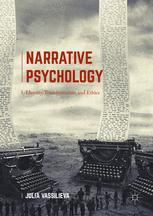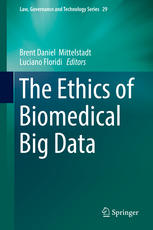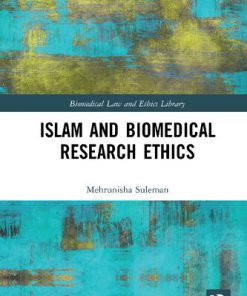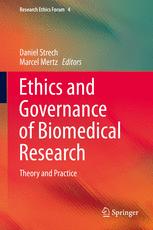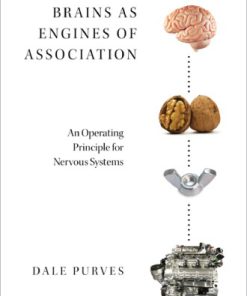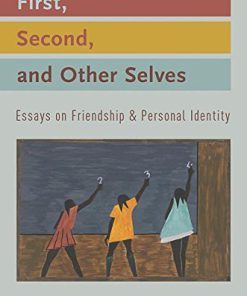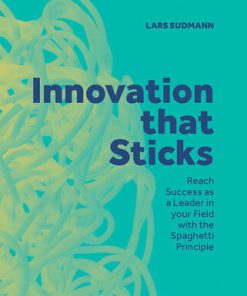Personal Identity as a Principle of Biomedical Ethics 1st Edition by Michael Quante 9783319568690 3319568698
$50.00 Original price was: $50.00.$25.00Current price is: $25.00.
Personal Identity as a Principle of Biomedical Ethics 1st Edition by Michael Quante – Ebook PDF Instant Download/Delivery:9783319568690,3319568698
Full download Personal Identity as a Principle of Biomedical Ethics 1st Edition after payment
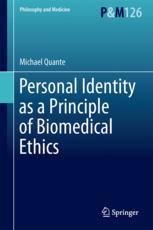
Product details:
ISBN 10:3319568698
ISBN 13:9783319568690
Author:Michael Quante
This book brings together the debate concerning personal identity (in metaphysics) and central topics in biomedical ethics (conception of birth and death; autonomy, living wills and paternalism). Based on a metaphysical account of personal identity in the sense of persistence and conditions for human beings, conceptions for beginning of life, and death are developed. Based on a biographical account of personality, normative questions concerning autonomy, euthanasia, living wills and medical paternalism are dealt with. By these means the book shows that “personal identity” has different meanings which have to be distinguished so that human persistence and personality can be used to deal with central questions in biomedical ethics.
Personal Identity as a Principle of Biomedical Ethics 1st Table of contents:
Chapter 1: Introduction
1.1 The Concept of Person: Kinds of Usage
1.2 Personal Identity: Four Different Questions
1.3 Divergent Epistemological-Methodological Approaches
1.4 The Structure of the Study
Chapter 2: Human Persistence
2.1 Easy Solutions to a Complex Problem?
2.1.1 The Charge of Inadequacy
2.1.2 With the ‘Weapons’ of the Simple View
2.1.3 The Problem
2.1.4 Easy Alternatives?
2.2 Human Persistence: A Complex View
2.2.1 Causality: First Group of Presuppositions
2.2.2 Sortal Dependence: Second Group of Presuppositions
2.2.3 The Biological Approach
2.2.4 Conclusion
Chapter 3: The Beginning of Life
3.1 Targets
3.1.1 Preconditions
3.1.2 Targets
3.2 The Beginning of Life: Human Persistence (I)
3.2.1 When Did This Human Organism Begin to Exist?
3.2.1.1 Definition
3.2.1.2 Explanations
3.2.1.3 The Criterion of the Beginning of Life
3.2.1.4 Explanations
3.2.2 Objections
3.2.2.1 I’ll Come Later
3.2.2.2 I Was Here Already
3.2.3 The Graduality of Integration: The Hard Problem
3.3 Persistence, Potentiality and Personhood
3.3.1 The Bioethical ‘Guillotine’
3.3.2 The Debate on the Potentiality Argument
3.3.2.1 Three Main Objections
3.3.2.2 Potentiality in the Framework of the Biological Approach
3.4 The Ethical Relevance of the Beginning of Life
3.4.1 Contraception Vs. Abortion: Possible Vs. Potential Persons
3.4.2 Gene Therapy, Persistence and Personality
3.4.2.1 Interventions Before or After the Beginning of Life: A Decisive Difference
3.4.2.2 Genetic Identity: All or Nothing?
3.4.2.3 Genetic Identity and Personality
Chapter 4: Death
4.1 Targets
4.2 The Fight over the Definition of Death: Some Clarifying Considerations
4.2.1 The Background
4.2.2 Criteria of Death: Three Candidates
4.2.3 Three Levels of the Problem
4.2.4 Three Strategies
4.2.5 Further Differences
4.3 Death: Human Persistence (II)
4.3.1 Definition
4.3.2 Explanations and Modifications
4.3.3 The Criterion of Death for Human Organisms
4.4 Criticism of Alternative Approaches
4.4.1 The Moral Strategy
4.4.1.1 The Moral Argument
4.4.1.2 Criticism of the Moral Strategy
4.4.2 The Subject of Human Death
4.4.2.1 The Ontological Strategy
4.4.2.2 The Biological Strategy
4.5 Objections and Open Questions
4.5.1 Objections
4.5.2 Open Questions
4.6 Persistence and Biomedical Ethics: A Brief Conclusion
Chapter 5: Personality and Autonomy
5.1 Targets
5.2 Personality
5.2.1 Is Identity Important?
5.2.2 Personality and the Question of the Identity of the Person Over Time
5.2.3 The Double Meaning of Identification
5.3 Personality and Autonomy
5.3.1 Personality as Precondition of Autonomy
5.3.1.1 The Hierarchic Model
5.3.1.2 The Biographical Dimension
5.3.1.3 The Externalist Dimension
5.3.2 Autonomy as Precondition of Personality?
5.3.2.1 Borderline Cases of Personal Autonomy
5.3.2.2 Autonomy, Authenticity and Personality
5.4 The Principle of Respect for Autonomy
5.4.1 Beauchamp’s Theory of Autonomy of Agency
5.4.1.1 From Personal Autonomy to Autonomy of Agency
5.4.1.2 Beauchamp’s Model of Autonomy of Agency
5.4.2 The Tacit Preconditions for Autonomy of Agency
5.4.3 The Principle of Respect for Autonomy
Chapter 6: Dying Autonomously
6.1 Targets and Preliminary Clarifications
6.2 The Value of Life, the Personality and the ‘Right’ to Die
6.2.1 The Argument
6.2.2 The Value of Life According to John Harris
6.2.3 Voluntary Euthanasia and Personal Autonomy
6.3 The Categorical Objection
6.3.1 The Objection
6.3.2 Subtle Distinctions?
6.3.3 Sanctity of Life and Plural Society: First Conclusion
6.4 Gradualist Objections
6.4.1 Four Objections
6.4.1.1 The Objection by Grisez and Boyle
6.4.1.2 Müller’s Objection
6.4.1.3 Bok’s Objection
6.4.1.4 Beauchamp’s Objection
6.4.2 The Social Context of Voluntary Euthanasia: Second Conclusion
6.5 Is There a Duty to Kill?
6.5.1 A Duty to Kill?
6.5.2 Who Has Veto Rights?
6.5.3 Dying Autonomously: A Closing Conclusion
Chapter 7: Extended Autonomy
7.1 Targets
7.2 Personal Identity, Autonomy and the Passage of Time
7.2.1 The Perspectivity of the Terminology
7.2.2 Types of Case
7.3 Limits to Extended Autonomy?
7.3.1 The Problem of Implementation
7.3.2 The “Do no harm!” Objection
7.3.3 The Assumption of Non-identity
7.4 Conflicts Within Personal Autonomy
7.4.1 Ulysses Contracts
7.4.2 Paternalism or Self-Paternalism?
7.5 The Ethical Relevance of Biographical Identity
7.5.1 Self-Commitment and Coherence
7.5.2 Restoration Versus Installation
Chapter 8: Medical Paternalism
8.1 Targets of Proof
8.2 A Definition of Medical Paternalism
8.2.1 The Definition
8.2.2 Elucidation of the Individual Conditions
8.3 Strong and Weak Paternalism? Beauchamp’s Criticism of Feinberg
8.3.1 Feinberg’s Distinction
8.3.2 Beauchamp’s Criticism
8.3.3 Three Objections
8.3.4 A Possible Basis for Beauchamp’s Argumentation
8.4 Personality as Reason for Justification
8.4.1 Personality-Based Justifications of Paternalistic Action
8.4.2 Anticipated Consent
8.4.2.1 Forms of Consent
8.4.2.2 Types of Cases
8.5 From Paternalism to Cooperation – A Brief Conclusion
Chapter 9: The Interlacing of Persistence and Personality
People also search for Personal Identity as a Principle of Biomedical Ethics 1st:
personal identity and ethics
principles of biomedical ethics by beauchamp and childress
principles of biomedical ethics 8th edition pdf
principles of biomedical ethics beauchamp pdf
principles of biomedical ethics 8th edition
Tags:
Michael Quante,Identity,Personal,BiomedicalEthics
You may also like…
History & Research
Narrative Psychology: Identity, Transformation and Ethics 1st Edition Julia Vassilieva
Politics & Philosophy - Anthropology
The Ethics of Biomedical Big Data 1st Edition Brent Daniel Mittelstadt
History - World History
Islam and Biomedical Research Ethics 1st Edition Mehrunisha Suleman
Politics & Philosophy
Politics & Philosophy - Anthropology
Ethics and Governance of Biomedical Research Theory and Practice 1st Edition Daniel Strech
Politics & Philosophy
The University as a Site of Resistance: Identity and Student Politics Gaurav J Pathania
Politics & Philosophy - Anthropology
Business & Economics




